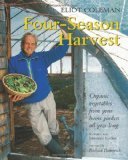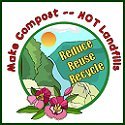You are here:
Home > Shrubs > Rose of Sharon - Diana
Rose of Sharon - Diana
Hibiscus syriacus 'Diana'
Price Each
$39.95

Rose of Sharon - Diana:
The Diana Rose of Sharon, Hibiscus syriacus Diana, is an upright, deciduous shrub that is a vigorous, erect, multi-stemmed shrub that typically grows 8-12' tall. This shrub may also be trained as a single trunk tree or espalier. Leaves are diamond-shaped, dark green, slightly palmate and toothed. 'Diana' bears whiteflowers with yellow stems from late summer until mid-fall. This plant really requires no pruning, unless you need to remove a dead or damaged branch. Long, early-summer to fall bloom period. This cultivar is a sterile triploid that produces very few if any seed pods. Excellent flowering shrub that may be massed, planted in groups or used as a specimen. Very tolerant of summer heat and humidity. Larger flowers may be obtained by pruning back hard to 2-3 buds in early spring. Otherwise, prune to shape.

FREE Garden Journal!!
Join "Garden Notes" and plan for Harvest Success as you track and record your gardening progress.
Your Free Personal Garden Journal has pages for jotting down notes on the seeds you start,
your new plantings, when you fertilized, and even a graph to plot a new garden.
What's New?
"Organic food has a higher nutritional value than ordinary produce, a study by Newcastle University has found."
"A team grew fruit, vegetables and reared cattle on adjacent organic and non-organic sites across Europe.
They found up to 40% more antioxidants could be found in organic fruit and vegetables than in non-organic.
The team said the findings call into question the current stance of the Food Standards Agency (FSA), which is neither for nor against organic food."
Organic Food Gardening Guide
Free
Gardening Catalog
Click Here
Book of the Month

A book full of valuable information on how to harvest fresh vegetables and salad
ingredients literally year-round--yet without an expensive greenhouse or indoor light garden set-up.
Coleman combines succession planting (small sowings three or more times, rather than
one big endeavor) with cold-frame growing in the winter months. He includes how-tos for building simple cold-frames.
Read More...
Garden Tip of the Day









